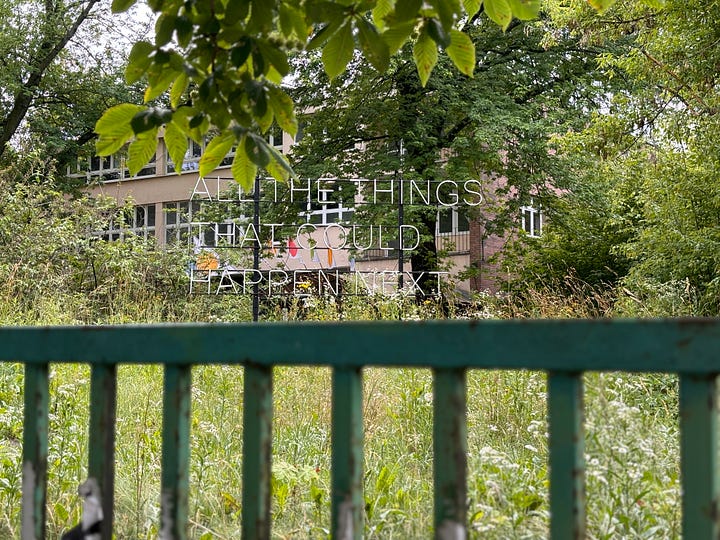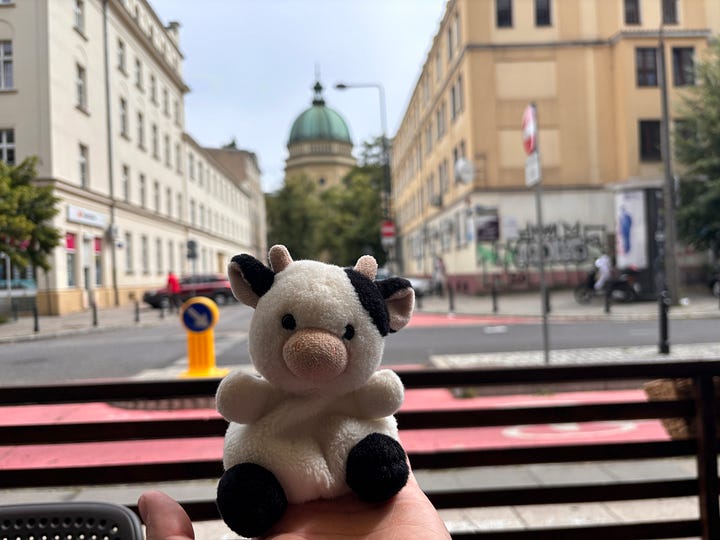Strong, Empty Feelings
When C.S. Lewis learned to back up his opinions
Clive Staples Lewis (C.S. Lewis), known to friends and family as “Jacksie” (or Jack), was a stridently opinionated young man from the earliest age. He was a bookworm, an avid enjoyer of mythology and you could even say he was a bit too pleased with himself for it. During an unpleasant period of Lewis’ life (age 15) studying at Malvern College, a boys’ prep school, Lewis began to form an aspect of his personality he’d work a lifetime to keep in check: scorn.
Malvern valued athletics above everything else. The school aimed to shape the boys through physical competition and sport, something which young “Jacksie” had no talent in or appetite for. He avoided the games whenever possible. But he went a step further and adopted an attitude of contempt for the school’s jocks. I was the same way at 15, despite being good at sports.
Lewis was this classic archetype. The nerd and intellectual who looks down on sports and all his peers who participate in it. Lewis wrote in a letter, “If I had never seen the horrible spectacle which these coarse, brainless English schoolboys present, I might be a danger of my sometimes becoming like that myself.” C.S. Lewis was at least self-aware and seemed to know he had an arrogance problem.
A few years later, Lewis had found himself a mentor in one, Mr. Kirkpatrick, a friend of the family. On a walk one day in the English county of Surrey, Kirkpatrick began to work on Lewis’ snobbery in what can only be described as a Socratic smackdown.
Lewis was Irish and very much hated being in England. He found it ugly, dry, and uninspired. So naturally, he made an underhanded remark about it. Lewis said on their walk that Surrey was “wilder” than he had anticipated.
Kirkpatrick began his pushback.
“What do you mean by wildness?” (I dunno)
“Have you been here before?” (No)
“Have you studied maps of the area?” (No)
“Have you read books about Surrey or seen photographs of it?” (NO!!)
Lewis was caught off guard. His gentle jab at Surrey wasn’t meant to provoke, it was just him making small talk, but it reflected his opinionated nature.
Kirkpatrick put Lewis in his place by asking him questions that would reveal what informed his thinking.
Nothing informed it. Only his contempt for England and romanticization of rural Northern Ireland.
Before you continue with this stoic lesson from the life of C.S. Lewis, open up our new Geeky Stoics video analysis on the closure of the “Star Wars Hotel” at Disney World. There’s another lesson here about opinions, stubborn confidence, and listening graciously to feedback.
C.S. Lewis had no basis for thinking ill of Surrey or that it would be tame and boring.
Lewis knew then that he needed to develop his critical thinking capabilities. Being taken apart like that over such a simple matter was not something he wanted to endure again.
In Meditations, Marcus Aurelius writes that:
“It is in our power to have no opinion about a thing, and not to be disturbed in our soul; for things themselves have no natural power to form our judgments”
Not being overly opinionated is a pillar of Stoic philosophy. The idea is that you should test every impression and feeling like a shopkeeper tests the currency they’re given by a shopper. Is this counterfeit?
The Roman stoic, Seneca said in his letters that, “Pain is slight if opinion has added nothing to it.”
C.S. Lewis could have used this when watching his peers play football at Malvern College. You don’t have to enjoy sports. You don’t have to have strong opinions about it all. His opinions on the thing were causing him to suffer more than the thing itself.
Our world is driven by opinion and sounding off, more than at any time in human history. It’s amplified and monetized by social media. Look around and you’ll see most people are not too happy about it, but they play right into the hands of the opinion industry.
It’s okay to not have an opinion about this or that. You are not uninformed for having no opinion. Nothing is worse and more cheap than a paper-thin opinion treated as gospel.
Thanks for reading Geeky Stoics! We’ll be back next week with more. I’m in Poland right now on business, but I did have a little excitement on my way here. Here’s that!
I did make it to Warsaw. Here’s the evidence. My daughter sent me here with her stuffed cow named Epictetus. Yes, the stoic…Epictetus.







One should taste the soup before adding any salt.